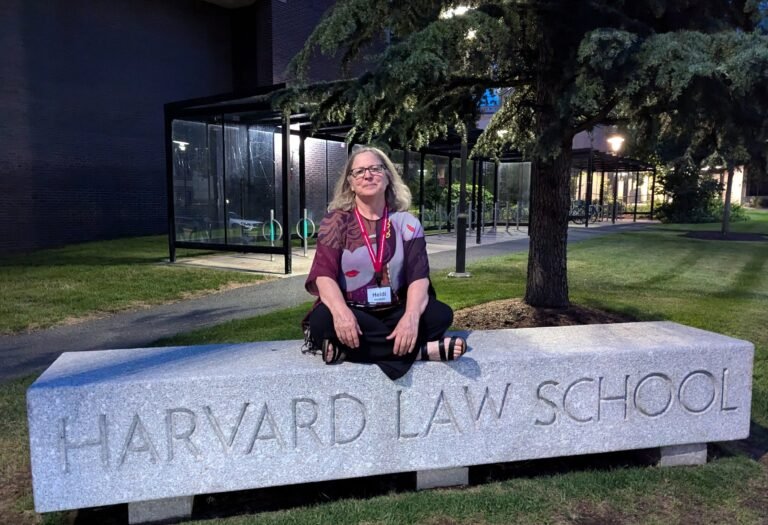Picture a circle of people gathered around a campfire on a cool Oregon night. The firelight flickers across determined faces. Some are facilitators, some are future service center owners, others are lawyers, educators, or policy dreamers. All of them have come together for one purpose: to make sure Oregon’s brand-new psilocybin program actually works for real people.
That campfire scene isn’t literal, but it captures the spirit of what unfolded here. When Oregon voters passed Measure 109 in November 2020, the headlines were splashy: First state to legalize psilocybin services. What the headlines didn’t capture was what came next—the long, messy, often exhausting work of turning an idea into a living system. That wasn’t done by lawmakers or regulators alone. It was done by people.
The Birth of a Movement
The Oregon Psilocybin Services Act gave the Oregon Health Authority the job of writing the rules. From the outside, that sounded straightforward. But those of us watching closely realized something important: if there wasn’t a coordinated community voice, the rules could end up impossibly expensive for small operators, unworkable for facilitators, and out of reach for clients.
In the fall of 2022, a handful of us began meeting. We didn’t have a budget, an office, or even a formal name at first. We had laptops, late-night Zoom calls, and a shared sense that Oregon’s psilocybin program would only succeed if it included the voices of the people who would actually run it. We named ourselves the Oregon Psilocybin Services Collaborative Community—OPSCC.
I still remember the first calls: patchy internet connections, kids and dogs in the background, people talking over each other with nervous energy. None of us were lobbyists. But there was a raw, collective determination.
OPSCC’s founding group was wide-ranging: Kayci Marie Mitchell, a passionate voice for equity in psychedelic access; Be Friend, a strategist and systems thinker; Andrew Yorra, seasoned policy advocate; Barron Johnson, business consultant, Patrick Sellers, longtime educator; Jon Dennis, attorney and advocate for ethical regulation; Mason Marks, legal scholar with national reach; Brian Pilecki, clinical psychologist and researcher; Jesse Koenig, organizer and process innovator; Andrea Shuman, clinical integrity and design voice; and me, Heidi Venture, bringing my background in advocacy and a future service center into the mix.
From the beginning, OPSCC was about collaboration and open communication. No one was paid. No one was in charge. We were building something new together.
Finding Our Voice
By late 2022, OHA had released draft rules. Reading them felt like staring at a brick wall: dense, bureaucratic, and in some cases, deeply impractical. We knew we had to respond.
OPSCC pulled together a long memo outlining changes we believed would make the system work better. But the real power wasn’t in the document—it was in the campaign that grew around it. We coached people on how to testify at public hearings. We created simple emails so even newcomers could send comments. I remember sitting at my kitchen table, watching the testimony clock tick down, heart pounding as I read my statement into the record.
Did OHA adopt everything we asked for? Of course not. But some things shifted. They softened some requirements. They opened the door to cloud-based video storage. They adjusted small but meaningful details that made operating a service center more realistic. And maybe more importantly, the community discovered that when we spoke together, we could be heard.
Facing the Tax Monster
Just when we caught our breath, another storm rolled in: Section 280E of the federal tax code. It sounds dry, but it was terrifying. Under 280E, psilocybin service centers—like cannabis businesses—can’t deduct ordinary business expenses. That meant we could be taxed on gross income instead of net. In plain language: pay taxes as if you had profit, even if you were losing money.
OPSCC regrouped, forming a 280E working group. We talked to accountants, lawyers, and cannabis operators. Some gave us blank stares—they’d never heard of 280E. Others knew it all too well and told us to brace ourselves.
There weren’t easy answers, but there was solidarity. We hosted Zoom sessions where dozens of us compared notes, shared survival strategies, and tried to make sense of the madness. Justin Botillier started offering video workshops on 280E and the three identified tax strategies. We had a roadmap– three of them, really, that let us open service centers in spite of 280E.
The Battle Over Data
Then came Senate Bill 303 in early 2023. On the surface, it was about collecting data to improve policy. But when we read the fine print, alarms went off. There was no clarity on what data would be collected, how it would be used, or whether clients would have a say.
OPSCC dove in. Mason Marks and Andrew Yorra worked tirelessly with lawmakers and legal experts. I joined in drafting letters and talking with nervous new operators who feared their clients’ privacy would be sacrificed. We testified at hearings, wrote amendments, and kept showing up.
The final bill wasn’t everything we wanted, but it was better. Clients gained the right to opt out, and OHA publicly committed to using aggregate data only. It wasn’t a total victory, but it proved again that showing up made a difference.
A Seat at the Table
By mid-2023, something had shifted. OPSCC wasn’t just a ragtag volunteer group anymore—we were being invited into the room. OHA began holding listening sessions, and later, formal Rules Advisory Committees (RACs). OPSCC members had seats on all of them: Be Friend sat on the Technical Fixes RAC, Jesse Koenig on SB 303 Implementation, and Jon Dennis on Facilitator Training and Higher Education.
I remember logging into those first RAC meetings with a mix of pride and disbelief. A year earlier, we’d been outsiders trying to figure out how to even submit comments. Now, we were directly advising on the rules. It felt like proof that persistence pays off.
Lessons from the Frontlines
OPSCC did something rare. Without funding, nonprofit status, or a PR machine, we built a grassroots, volunteer-run network that influenced state policy, educated new business owners, and held onto shared values of access, safety, and inclusion.
Some of our volunteer have since launched service centers or become licensed facilitators. Others continue to influence policy and research. And some are still in the trenches of advocacy and design. Each volunteer represents real hours of unpaid work that moved Oregon’s psilocybin industry forward.
The Oregon model didn’t just spring from a voter measure. It was hammered out through late nights, public hearings, strategy calls, and a lot of stubborn hope. It was built by people who believed collaboration was worth the effort—even when it was messy, frustrating, and exhausting.
OPSCC showed that even in the bewildering world of new policy, grassroots voices can matter. And maybe that’s the most important lesson of all: this isn’t just a story about rules and regulations. It’s a story about people who came together, lit a fire, and built something the world had never seen before.



